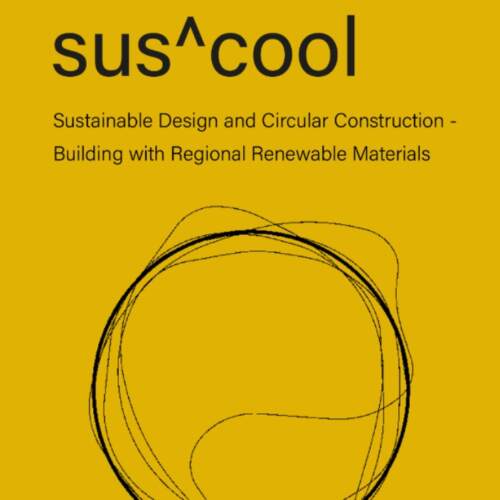Field sus^cool – Sustainable Design and Circular Construction
Project leader: University of Applied Sciences Campus Wien, DI Aida Santana Sosa
Project team: DI Elena Manolas, Ao. Univ. Prof. DI Dr. Andrea Rieger-Jandl
Project form: Research Project
Funding: MA 23, Wirtschaft, Arbeit und Statistik
Duration: 1st Sep. 2022 – 31st Dec. 2027
Links: www.suscool.eu; www.greenbuildinglab.at; https://www.instagram.com/greenbuildinglab_hcw/
The project sus^cool deals with the topic of “Sustainable Design and Circular Constructions from Renewable Materials”. In the course of the project, two (for BA and for MA) 3-week modules/workshops with each 4-5 ECTS will be developed. They will be permanently integrated in the curriculum as selectable modules in the form of a summer school in the degree programs Architecture – Green Building and Civil Engineering at the University of Applied Sciences Campus Wien, with the aim to raise the internationalization. The main target groups are representatives of European universities, especially BSc/BA-, MSc/MA-students and teachers from the fields of architecture and civil engineering.
The project sus^cool deals with the topic of “Sustainable Design and Circular Constructions from Renewable Materials”. In the course of the project, two (for BA and for MA) 3-week modules/workshops with each 4-5 ECTS will be developed. They will be permanently integrated in the curriculum as selectable modules in the form of a summer school in the degree programs Architecture – Green Building and Civil Engineering at the University of Applied Sciences Campus Wien, with the aim to raise the internationalization. The main target groups are representatives of European universities, especially BSc/BA-, MSc/MA-students and teachers from the fields of architecture and civil engineering.
The curriculum will be developed on the basis of detailed research as well as needs assessment through intensive exchange with the partner universities and with the results being continuously validated through workshops. An important component of the Summer Academy is the competence building of the researchers and teachers at the Department “Building and Design” by workshops and specialization courses with advancing partner universities. This will deepen their expertise in key areas of sustainable construction (including process optimization and automated construction, self-sufficiency, resource conservation and circular economy), and the content will be incorporated into their teaching and research activities, or the summer school.
The didactic concept of the summer school consists of a virtual and a physical part. During the virtual part, important contents of building with renewable building materials are acquired by the students through interactive digital approaches, virtual group work, and subsequently tried out in practice during the physical part. The Summer Academy sees itself as a field of experimentation where different interactive didactic methods approaches (including blended learning, virtual collaboration, problem-based learning) as well as innovative digital and craft approaches to sustainable building are appropriated, practically tried out, continuously evaluated, adapted and subsequently integrated into the curriculum. The goal is to test the limits of what is feasible within the framework of a university education and to create space for something new.
Main objectives:
> Development of a customized curriculum for two selectable specialization modules held in English-language in the field of sustainable building materials for the bachelor’s and master’s degree programs in architecture and civil engineering.
> Competence building and networking: The competence of teachers and researchers is to be built up through topic-related workshops and specialization courses with pioneering partner universities, in which innovative content and methodological-didactic approaches are acquired.
> Integration of the Summer Academy into the regular curriculum of the degree programs in architecture and civil engineering with the aim of sustainable and long-term internationalization. The Summer Academy will be permanently integrated into the degree programs in the form of parallel selectable in-depth modules, which will be completed instead of thematically similar courses, and will be continued after the end of the project.
.

